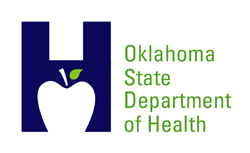OSDH working to reconcile thousands of unattributed deaths
Mike Seals - June 30, 2021 11:41 am

OKLAHOMA CITY (KFOR) – In a new report, the Oklahoma State Department of Health said 2,893 deaths from 2020 are missing, causing concerns over Oklahoma’s COVID-19 death toll.
“It’s very unusual. We’re seeing COVID being questioned. That’s what we find very concerning,” said Dr. Mary Clarke, the Oklahoma State Medical Association’s president.
Clarke said in 2019, there were only six unattributed deaths.
Dr. Dale Bratzler, OU’s Chief COVID-19 Officer, said he expects to see the state’s COVID-19 death toll increase. He added, the large number of unaccounted for deaths happened in a short period of time.
“So, I think there’s going to be a large category of people who have died suddenly and it’s not clear,” said Dr. Bratzler. “There are probably a lot of people who die in the community who may or may not have even been tested for COVID-19, but they have one of the known complications of COVID.”
Dr. Clarke said most states go along with CDC guidelines.
“The physician said, ‘This patient died from complications of COVID.’ They are marking this down as a complication from COVID. Oklahoma, however, is not. We are very concerned about that.”
“We’re concerned that this data is being kind of washed over a little bit to make the state’s numbers look better.” — DR. MARY CLARKE, OKLAHOMA STATE MEDICAL ASSOCIATION PRESIDENT
The doctor said she’s worried the state is only looking at someone’s primary cause of death, rather than something like double-lung pneumonia, which could be caused by COVID.
“What we feel is happening is that they’re only looking at the primary death,” she said. “That’s where we’re getting hung up on. What the actual cause is.”
Tuesday night, Jolianne Stone, the State Epidemiologist with OSDH, provided KFOR with the following statement:
“OSDH is aware of these deaths and is currently working to reconcile them. We are ensuring these deaths are likely attributed to COVID by conducting a medical record review and are working with facilities and medical records. Once investigation is completed we will incorporate those deemed as COVID-19 into our system.” — JOLIANNE STONE, STATE EPIDEMIOLOGIST, OSDH
“We have a disease that we’ve never seen before that is now, all of a sudden, being questioned as a disease at the state level,” said Dr. Clarke. “We’re concerned that this data is being kind of washed over a little bit to make the state’s numbers look better.”
The OSMA said it plans to meet with the OSDH in a week and a half to discuss these concerns.



